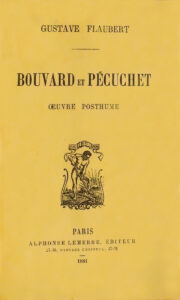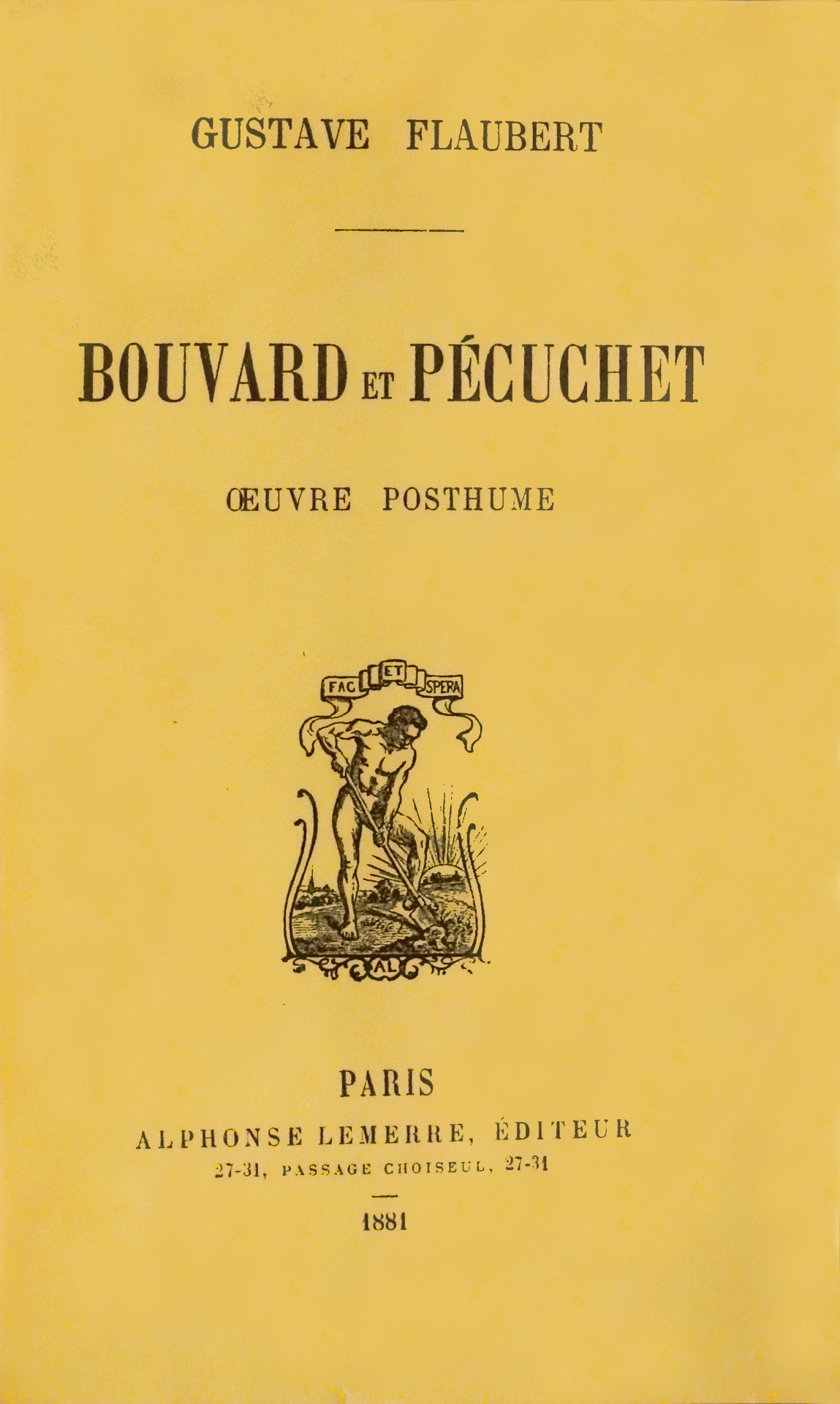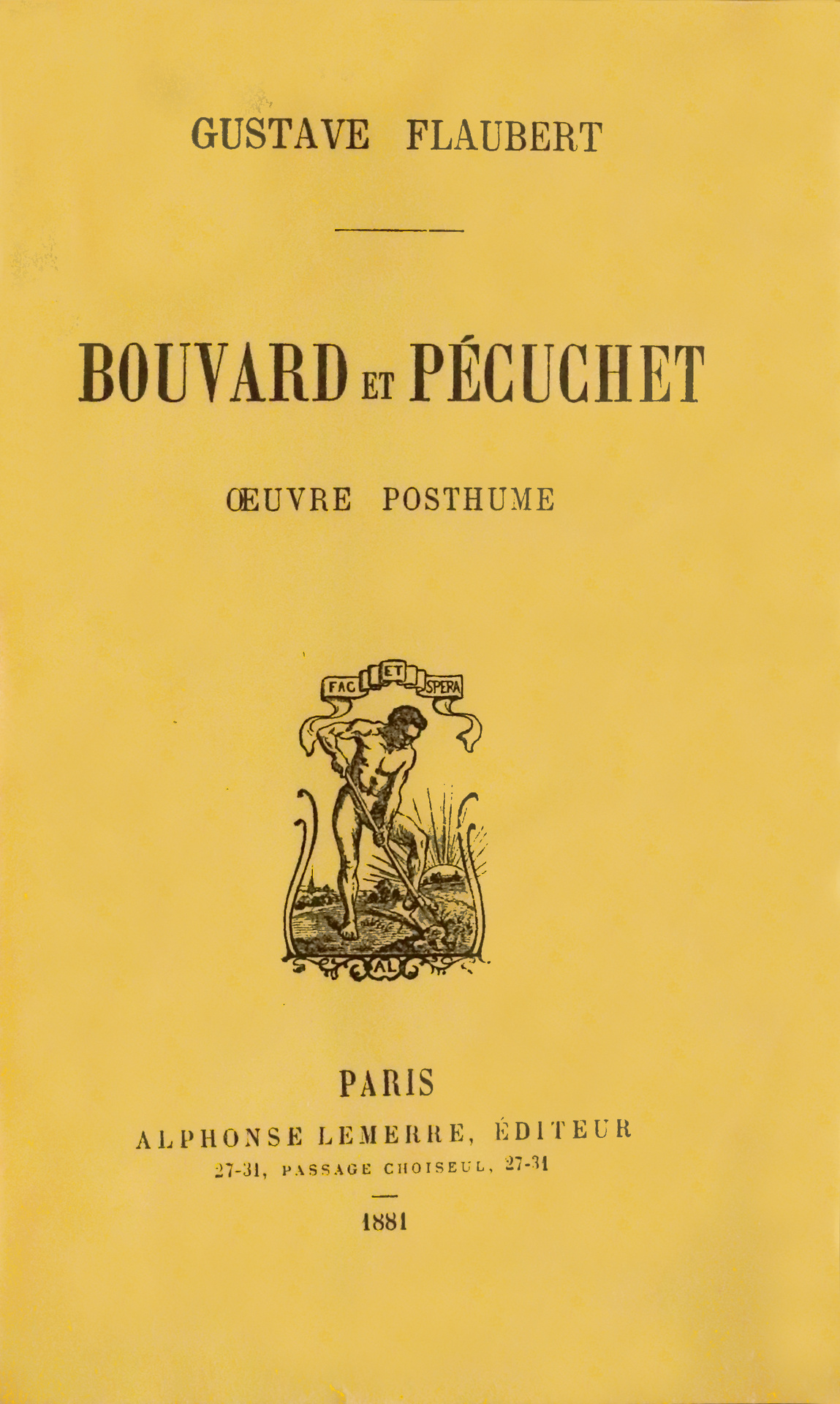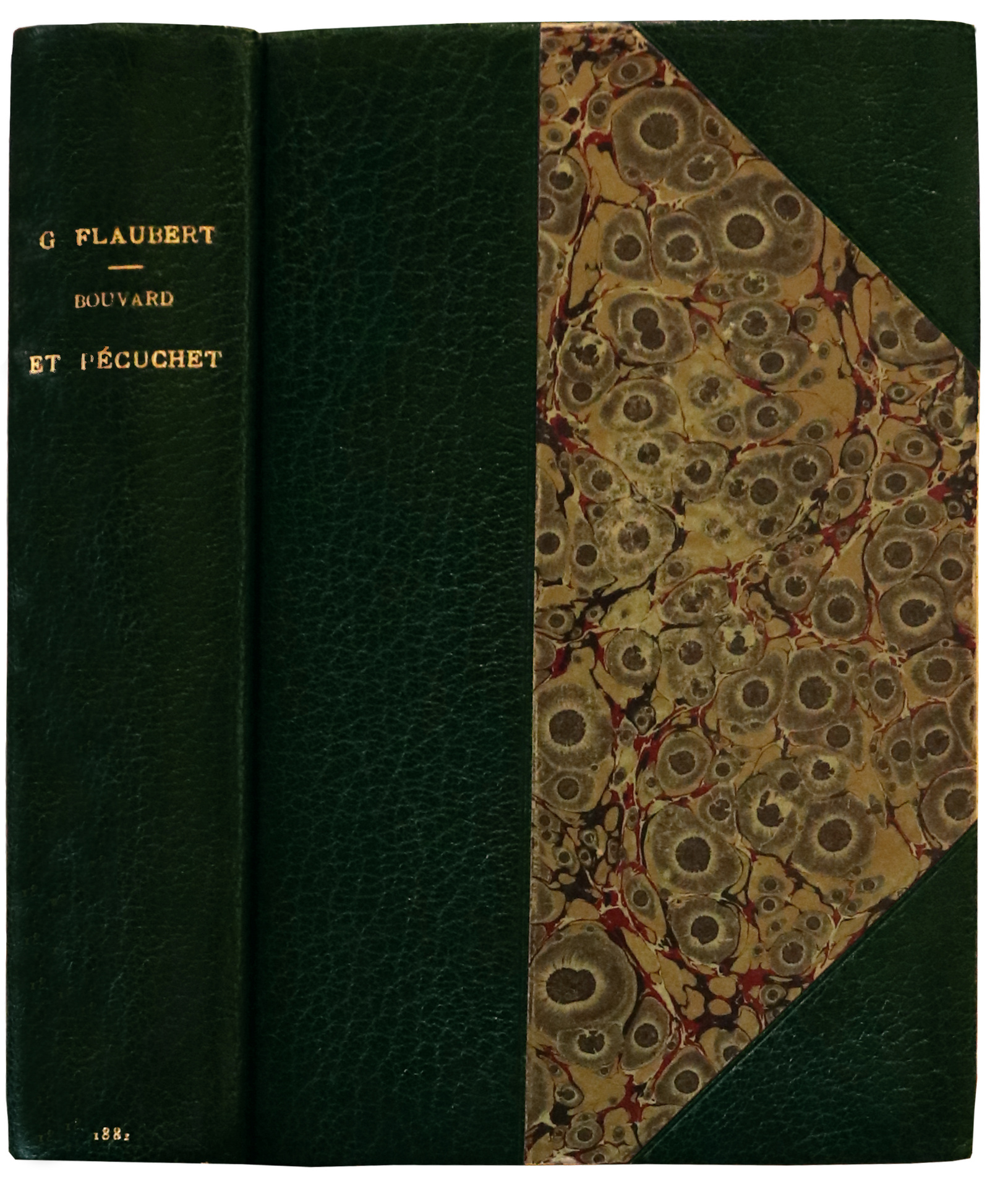Paris, Lemerre, 1881.
12mo [183 x 120 mm] of (1) bl. l., (2) ll., 400 pp., (1) bl. l., foxing on the endpapers. Green quarter-morocco, flat spine, untrimmed, yellow printed wrappers and spine bound in. Contemporary binding.
First edition of Flaubert’s last novel.
One of 55 copies on Holland paper, “more and more sought after, particularly on large paper”. Clouzot, 122
Carteret, 270; Rahir, La Bibliothèque de l’amateur, 427.
Copy quoted by Vicaire (III, 733): “on Hollande paper, in green quarter-morocco, untrimmed, with the wrappers, 26 fr. Bouret”.
In this biting satire, conceived at the end of his life and left unfinished, Flaubert violently attacks the bourgeois spirit and the intellectual vanity so widespread in his time, and in particular the cult of science and the criticism of “those who believe they know and have not even learned to learn”.
Some passages are reminiscent of Léon Daudet’s vengeful expression: “the stupid nineteenth century.”
The author wrote in a letter to Raoul-Duval in 1879: “The work I am doing could have as a subtitle: ‘Encyclopaedia of Human Stupidity'”.
“The book is not lacking in amusing episodes or tasty inventions. The first chapter, although tinged with a somewhat ferocious irony, is nonetheless a hymn to the friendship between the two copyists Bouvard and Pécuchet who discover common tastes and buy a property in the countryside with Bouvard’s inheritance, which they intend to make profitable themselves. The following chapters are admirably lively and accurate in tone.”
Disappointed by all their failures, they will go back to copying what Flaubert did not have the time to write: what the two friends copied for their pleasure, perhaps the joker of great and small writers that they had fun composing, or the ‘Dictionnaire des idées reçues’, a collection of conventional sayings collected by the novelist…
A fine copy of this sought-after first edition, one of only 55 printed on Holland paper, bound at the time, untrimmed, with its yellow printed wrappers bound in.




